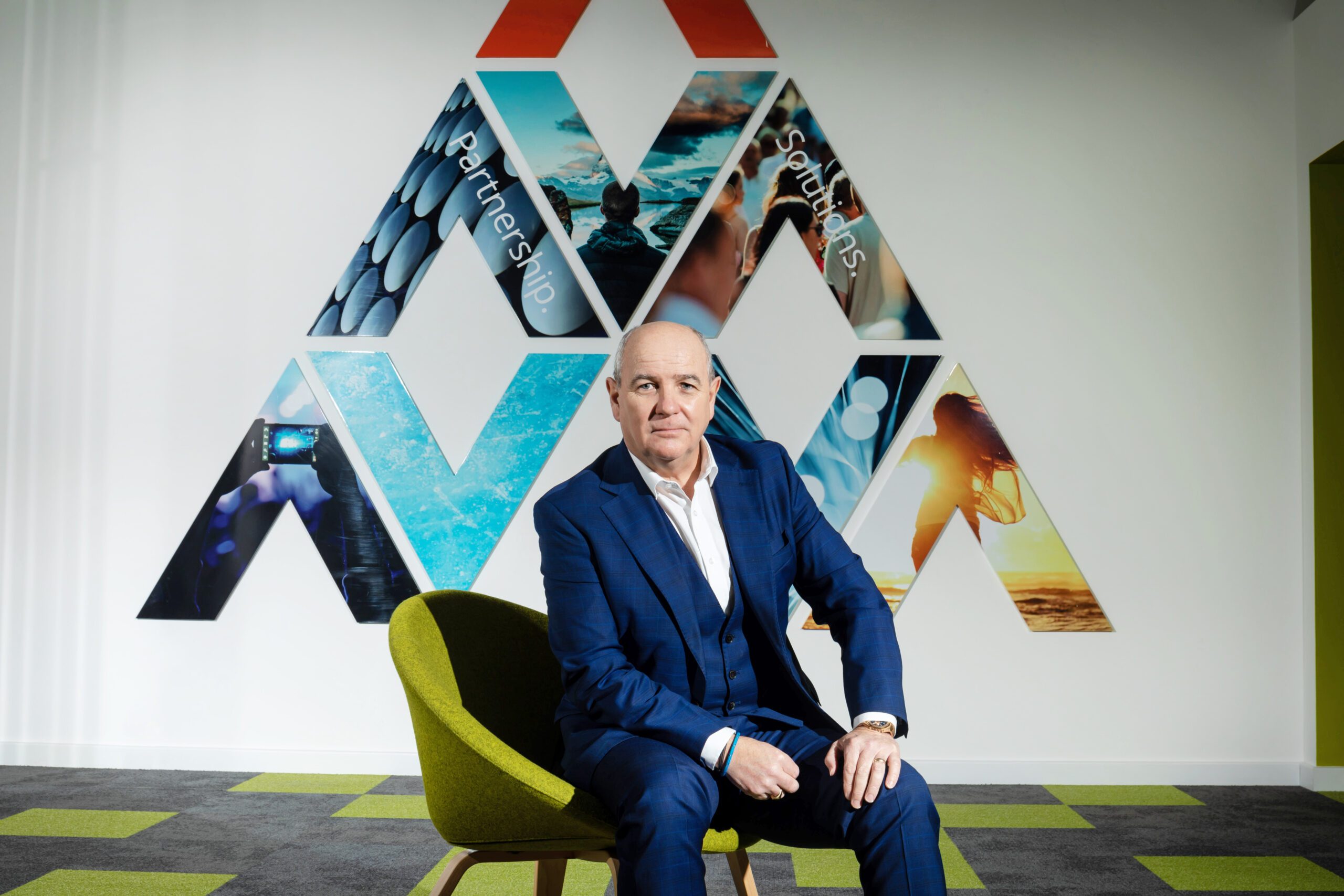Advanced is a software company that you may not have heard of, yet their products and services touch the lives of millions of people. If you have called NHS 111, travelled on a smart motorway, caught a train to work, donated to a charity or booked tickets to an event – it’s most likely that Advanced software powered that experience.
Advanced is not a typical ERP vendor. In fact they are more of a software vendor with ERP capabilities than a pure play ERP provider. Over the last 10 years they have acquired and developed a collection of applications and tools that, when combined, provide an organisation with a full suite of finance, HR, payroll and workforce management capabilities. They also sell industry specific solutions developed in particular niches such as conveyancing for the legal sector and membership management solutions for charities and venues.
Advanced is the third-largest software company in the UK with 20,000 customers operating predominantly in healthcare, blue-light services, legal, education, third-sector, sports and events. Their solutions enable care to be delivered to more than 40 million people in the UK, they (pre-COVID) help 10 million sports fans through the turnstiles, and manage more than £1bn in charitable donations. It’s hard to imagine another software company that has such reach into the lives of UK citizens.
Five years ago, Gordon Wilson took over as the CEO and set Advanced on a mission to become the first and only software vendor that provided human-to-human services. In order to deliver on this, Advanced has developed a deep commitment to social and environmental responsibility. It has hired a youthful and dynamic workforce through innovative recruitment techniques that appeal to a younger audience. And, has invested heavily to create a culture and set of guiding principles that sit comfortably alongside their mission statement, ‘to be the software vendor that makes a difference to millions of lives’.
From a technical perspective, Advanced has made significant strides towards reshaping their products and services so they are fit for the demands of modern organisations. They offer a choice of cloud and on-premise deployment options and present their tools and applications to users through a bespoke workflow management solution called MyWorkplace.
I caught up with Wilson at their flagship office in Birmingham to find out what was driving Advanced’s strategy and to learn how he had turned the company around from a fairly non-descript software house with an incoherent collection of products to become one of the biggest success stories in UK software history
Gordon, you’ve been the CEO at Advanced for just over five years. What did the business look like when you first joined?
GW “Very different to how it looks today. There were 14 siloed businesses that had been acquired, all with their own MD and management team. In some cases, their own individual branding and their own message to the market. It was a good business, but it wasn’t a great business, and it needed some work to simplify the internal structures and reshape the products with a focus on customers.”
What were the first things that you put your hand to? What was top of page one in terms of reshaping the business?
GW “Well, there were quite a number of first things that were of equal importance and needed to be tackled. At the start we had the four Rs – to reorganise, to relocate, to recruit, and rebrand. I restructured the business by bringing the 14 separate companies into four sectors and operating as one organisation. We merged more than 40 offices into three flagship locations based at Heathrow, Birmingham and Manchester. We recruited literally hundreds of new people with the sort of DNA that we were looking for to inject the business with new vitality and fresh blood. And then we completely rebranded.”
In terms of the products, how integrated were they or were they completely separate?
GW “They were completely separate products and there was only one cloud based solution back then. We had some great products, but there was little focus or strategy around the move to cloud. From that point of view, there was a lot of work to do.”
If you think back over your first five years, how do you feel that you’ve measured up against some of the key challenges?
GW “We started running NPS in December of 2015. And the score came back with a rolled up weighted average of minus 16. That was basically saying, it’s not a train crash but you need to pull your socks up.
“We continued to run it every six months and now we’re plus 30. So a 46 point improvement over that five years. In NPS terms that’s quite stellar. Our cloud products’ NPS is plus 37, so even higher. We’re starting to get close to what is a really good software standard but I won’t rest until we’re even higher.”
What’s been the main driver for that? What’s had the biggest impact on that overall satisfaction?
GW “There was a whole raft of things we did but bringing us together on a common platform made a huge difference. Before we made the changes, customers that used two or three of our products got a completely different service and experience depending on who they called or how they contacted us. We put a new system in place so that all our support activities were delivered on a common platform. Everyone has visibility of the customer relationship now. We all know what products they’re using. We all know when they last called and what their problem was.”
Where are you in the journey of retooling or re-platforming the legacy products that you inherited and that you’ve acquired?
GW “We’re not at the end of the journey because it’s a big job but we are well down the road. We now have 19 SaaS cloud offerings for all of our main customer product streams to migrate to. We still have thousands of customers that are sitting on legacy systems, but do you know what? An awful lot of these customers are very happy on them. And we’re not forcing them to move to the cloud – what we are doing through good account management is allowing them to see the benefits and the opportunity of moving to a true SaaS cloud product.”
One of the key differentiators with your applications is that they impact people in their every-day lives. Have you stumbled across that by accident or is that part of a defined strategy to build products and services that work for people in the community, citizens rather than for those in their working lives?
GW “When I joined Advanced we asked ourselves a whole series of questions about what did we stand for and what was our mission? Is it just to talk about our solutions or is it actually to go past our customer, to our customers’ customer, and be human to human rather than business to business?”
“Our customer is technically a patient, a student, someone buying a house that’s having conveyancing done, a passenger on Virgin Rail”
“Our customer is technically a patient, a student, someone buying a house that’s having conveyancing done, a passenger on Virgin Rail – we literally touch millions of people’s lives every single day without them knowing it.
“We’re very proud of the way we can impact people and society. Take our response to the pandemic, for example. The 111 system which is the spine of the NHS is powered by Advanced software. 80 percent of all calls in England go through our systems and that has made a huge difference to people’s lives. When the pandemic hit we had to stand up new environments to support the surge in demand – and we did it in record time – in a matter of days rather than weeks.”
Advanced is co-owned by two VC funds – how invested are they in your vision to build a software company that focusses on human to human software rather than business to business?
GW “I’m not just saying this because it’s an interview and I’m not just saying this because they appointed me. I’m saying it because it’s true. They couldn’t be more supportive and they’re fully behind the business and what the business stands for.
“In fact, they are pushing us to do even more. We have started our ESG initiative and they are fully supportive of that. Who’d have thought 20 years ago that a PE firm would be so behind initiatives that are focussed on culture, sustainability, the environment and social responsibility?”
Purchasing decisions increasingly have a sustainability element to them – is that why Advanced has started these initiatives?
GW “The vast majority of public sector contracts talk about your ESG and they score you on that. So yes, it’s important to do it, but don’t just do it because you got to tick a box, do it because you believe in it. You have to believe in it and be able to drive the ideas through your internal culture and ultimately into your customer relationships.”
Talking of customers, aside from NHS that we have already mentioned, which other notable customers are you helping?
GW “One of our big customers is London City Airport and they have been floored by the pandemic – it basically had to close. They have a managed service with us and they still have to have it in the background. Contractually they were obligated to keep paying for a service they weren’t using but of course we helped them and allowed them to shut down without financial penalty and keep the lights on with a skeleton service. And in fairness to them, they extended our contract for that so we gave them something and they’ve given us something which will be downstream.
“We also work with Highways England and manage all the IT infrastructure for the gantries and signage. The systems behind all that the smart motorways are powered by Advanced software. There’s so many touchpoints where our software and services impact our customers lives; the guy driving in his car, someone flying out of London City Airport, a citizen calling NHS 111. We take our impact and responsibility seriously and that why we have worked so hard to bring the quality of everything we do up to a level that exceeds expectations.”
What’s the one thing that you’d like people to know about Advanced?
GW “We are a people centric business with a strong social conscience. So that’s our bedrock. And we will continue to develop great solutions that can be consumed by our customers to help their customers and they are patients, students, customers, passengers, the population of the UK and Ireland where we serve.
“We have a really laser-focus on quality to continually drive the quality agenda because I believe the overriding thing that all customers always want is quality product, and quality service. And if we don’t continually have that focus, then I believe that will be a head wind to our future growth aspirations.”




